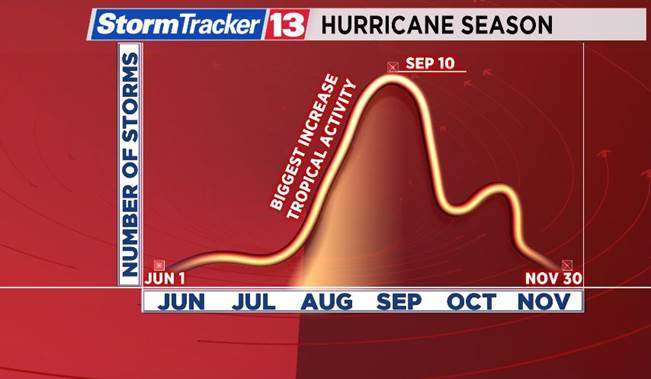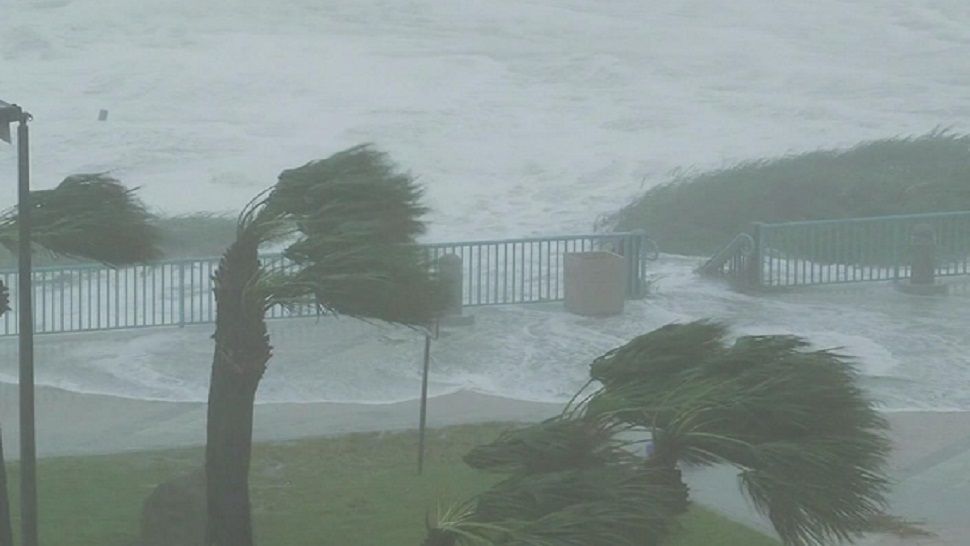ORLANDO, Fla. — We are now entering the three most active months of hurricane season in the Atlantic Basin.
- RELATED: Weather Blog: Could the Atlantic Tropical Season Get Busier?
- STORM SEASON 2019: Interactive Storm Tracker | Latest News | Tropical Weather Maps | Printable Supply Checklist | How Much Do You Know About Hurricanes? Take Our Quiz | Download the Spectrum News 13 App
- READ MORE: Spectrum News 13's Weather Blog
August is the month when we see the tropics start to get more active in the open waters of the Atlantic and it can stay busy through October.
Of course, hurricane season runs until the end of November, but November is when we generally see the tropics start to wane.
The reason it takes until the third month of summer to get more action in the tropics is due to a few variables.
First, it takes time for the deeper waters of the Atlantic to start to warm up. Most of the summer months are spent heating the ocean up.
Tropical storms and hurricanes need warm ocean temperatures to survive. The ocean temperatures need to be at least 80 degrees or warmer.

While the Gulf of Mexico heats up quickly and most of the waters surrounding Florida do too, the open waters in the central and eastern Atlantic generally take a couple months, because it is much deeper water.
The water doesn’t only need to be warm at the surface, but it also needs to be warm through a good depth of the ocean waters.
Wind shear, or the changing of winds with height, also is strong in late spring and early summer.
These strong winds tear tropical waves (clusters of rain and storms) apart and prevent them from organizing further into a tropical storm or hurricane.
The winds tend to relax and become lighter from mid-August through mid-September.
We also start to see less dust from the coast of Africa being dragged across the Atlantic by the stronger winds.
The dust keeps thunderstorms from developing over the Atlantic and the dry air in place.
The dust can stop moving into the Atlantic during this time of the season too.
So 78 percent of tropical storm days occur between mid-August and mid-October meanwhile 87 percent of category 1 and category 2 hurricane days take place.
Ninety-six percent of major hurricane days happen during this time period too.
Bottom line, there is a long way to go in the Atlantic hurricane season. While it has been relatively quiet so far, don’t be surprised if you start hearing more about areas to watch for potential development going forward.
It is always best to be prepared ahead of time before any storm is ever named.
We will have continuous updates during your Weather on the Ones throughout the 2019 tropical season on Spectrum News 13.



